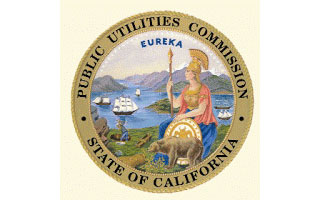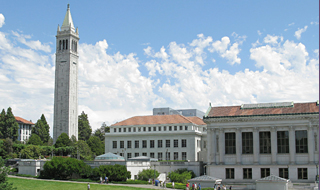Something New to Worry About: Connected Toy Security
by Bree Fowler, Associated Press

Rapid7 researchers examined the Fisher Price Smart Toy, an interactive stuffed animal for children aged 3 to 8 that connects to the Internet via Wi-Fi. They also took a look at HereO, a GPS smartwatch that allows parents to track their child’s location. In both cases, they found that the toys failed to safeguard children’s information such as their names and in the case of the watch, their location, storing it on remote servers in such a way that unauthorized people could access it by masquerading as legitimate users. … Toy-related security problems began to grab headlines late last year. Read More ›
Wells Fargo To Pay $1.2 Billion Over Bad Government-Backed Mortgages
by ff, Los Angeles Times

If approved by a federal judge, the settlement would close the books on a 2012 lawsuit that the government filed against the bank over bad loans backed by the Federal Housing Administration. … Between 2001 and 2005, prosecutors said, the bank issued thousands of FHA loans that did not meet the program’s requirements, which include minimum incomes and credit scores for borrowers. They also said that from 2002 to 2010, the bank violated federal reporting requirements by keeping problem loans under wraps and collecting insurance payouts when loans went bad. Read More ›
State Legislators Call For Drastic Overhaul Of California’s Utility Regulator
by Melanie Mason and Jeff McDonald, Los Angeles Times

Assemblyman Mike Gatto (D-Los Angeles) said his measure would decentralize the California Public Utilities Commission’s oversight of myriad utilities, including electricity, railroad safety and ride-sharing companies such as Uber and Lyft. … Gatto, chairman of the Assembly’s utilities committee, would give the Legislature two years to divvy up the functions of the commission among other agencies, which Gatto said would result in a more logical assignment of responsibilities. Read More ›
Group Behind Golden Nugget Casinos, Rainforest Cafe, And More Releases List Of Locations Hit By Data Breach
by Mary Beth Quirk, Consumerist

Late last year, Landry’s Inc., a restaurant conglomerate with over 500 locations, confirmed that it had been hit by a credit card data breach. At the time, the group didn’t confirm how many locations were affected. … The company manages dozens of chains like Morton’s Steakhouse, McCormick & Schmick’s, and the Rainforest Cafe, as well as several hotels, resorts, and casinos, including the Golden Nugget chain. Read More ›
At Berkeley, A New Digital Privacy Protest
by Steve Lohr, New York Times

Under a program initiated by [UC President Janet] Napolitano, the former secretary of Homeland Security in the Obama administration, the university system began installing hardware and software in its data centers that would monitor patterns of digital traffic, like what websites are being visited by faculty and students, or telltale signs of cyber intruders. … The roots of the dispute stretch back to the attack disclosed last July at the UCLA Health System, which potentially put the private information of 4.5 million patients at risk. Read More ›
Why Is The UC System Investing In A Payday Lender Accused Of Trapping Consumers In Perpetual Debt?
by David Lazarus, Los Angeles Times

The university has invested millions of dollars in an investment fund that owns one of the country’s largest payday lenders, ACE Cash Express. … [The CFPB] has found that only 15% of payday loan borrowers are able to repay their loans on time. The remaining 85% either default or have to take out new loans to cover their old loans. Because the typical two-week payday loan can cost $15 for every $100 borrowed, the bureau said; this translates to an annual percentage rate of almost 400%. Read More ›
Cyberthieves Have A New Target: Children
by Priya Anand, Wall Street Journal

[The Identity Theft Resource Center] says it received 298 calls related to child identity theft in 2015, or about 5.4% of the cases it heard. Because child-identity theft tends to be detected long after the fact, such numbers may vastly underestimate the scope of the problem. Credit-reporting companies add that thefts of minors’ identities are hard to uncover because children can have legitimate credit records if parents add them to a credit card as an authorized user. Meanwhile, data breaches exposing children’s personal information online are becoming more common. … Parents can protect their children a number of ways. Read More ›
PG&E Can’t Find Original Records For South Bay Gas Lines
by Jaxon Van Derbeken, San Francisco Chronicle

The Public Utilities Commission inquiry is focused on PG&E’s distribution pipes, which snake through neighborhoods, delivering gas to homes and businesses. They are smaller than transmission pipelines such as the one that exploded in San Bruno in 2010, killing eight people. That disaster happened when a flawed pipeline weld — which did not show up on PG&E records and had never been tested — ruptured. … Utilities commission staffers are pressing for a large fine against PG&E for the Carmel blast, saying the company did little about the issues raised by its missing De Anza records until after the explosion. Read More ›
Regulators Get Input – Sort Of – On Self-Driving Car Rollout
by Justin Pritchard, Associated Press
California’s DMV is still months away from finalizing any regulations. Under the draft framework, an independent certifier would need to verify a manufacturer’s assurances that its cars are safe. Google and traditional automakers want manufacturer self-certification, the standard for other cars. Once a company receives that verification, manufacturers would receive a permit for three years. Consumers could lease the cars, but manufacturers would be required to keep tabs on how safely they are driving and report that performance to the state. Drivers would need special, manufacturer-provided training, and then get a special certification on their licenses. Read More ›
California Solar Owners Face New Fees, Utilities Say Costs Should Be Higher
by Ivan Penn, Los Angeles Times

[The CPUC] narrowly passed new rules that will increase costs for owners of rooftop solar systems, part of a broad reshaping of the state’s energy future. … New solar customers would face a one-time charge to tie into the grid. The commission estimates the fee would range from $75 to $150 per solar customer. In addition, rooftop solar customers would pay a fee estimated at 2 cents per kilowatt-hour for electricity used from the utility companies, no matter how much power their solar systems generate. Read More ›
Hard Drives Holding Health Data Missing At Medical Insurer
by Chris Rauber, San Francisco Business Times

The latest in a series of huge data losses in the health care realm — health insurer Centene’s loss of six hard drives containing personal information on 950,000 enrollees — raises more questions about the security of health data that consumers entrust to insurance companies, hospital systems, Medicare, Medicaid and other big players. … Confidential health care data can sell in murky portions of the Internet for $10 to $50 per record — far more than the roughly $1 a simple credit-card number is worth. Medicare records are even more valuable, … and can sell for as much as $470 per record. Read More ›
Why Procrastinating With Your Tax Return Could Cost You
by Jonnelle Marte, Washington Post

“It’s even more important this year to file early,” says Melissa Labant director of tax advocacy for the American Institute of CPAs. “The later [people] wait, the more they increase the chances of having a criminal file on their behalf.” Take a look at what happened last year. On Feb. 5, Intuit, the maker of TurboTax, temporarily stopped processing state tax returns after noticing a surge in suspicious filings. Some states later reported that fraudulent activity had multiplied by nearly 40 times — and it was only a little more than two weeks into the filing season. Read More ›
Wendy’s Probes Reports Of Credit Card Breach
by Brian Krebs, KrebsOnSecurity

Wendy’s, the nationwide chain of fast-food restaurants, says it is investigating claims of a possible credit card breach at some locations. The acknowledgment comes in response to questions from KrebsOnSecurity about banking industry sources who discovered a pattern of fraud on cards that were all recently used at various Wendy’s locations.
Bob Bertini, spokesperson for the Dublin, Ohio-based restauranteur, said the company began receiving reports earlier this month from its payment industry contacts about a potential breach and that Wendy’s has hired a security firm to investigate the claims. Read More ›